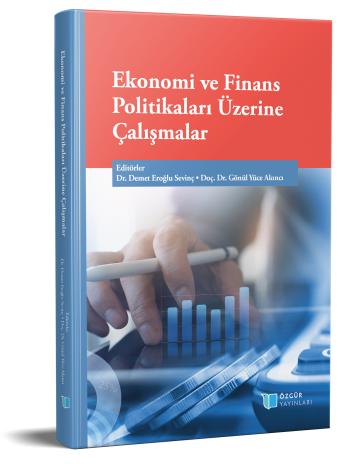
Türkiye’de Yabancı Portföy Yatırımları ve Döviz Kuru Volatilitesi Arasındaki Simetrik ve Asimetrik Nedensellik İlişkisi
Şu kitabın bölümü:
Eroğlu Sevinç,
D.
&
Yüce Akıncı,
G.
(eds.)
2023.
Ekonomi ve Finans Politikaları Üzerine Çalışmalar.
Özet
Bu çalışmanın temel amacı Türkiye ekonomisinde yabancı portföy yatırımları ve döviz kuru volatilitesi arasındaki nedensellik ilişkisinin ampirik olarak araştırılmasıdır. Çalışmada 1994Q1-2021Q2 dönemi arası çeyreklik veriler kullanılmıştır. Öncelikle döviz kuru volatilitesini elde etmek için reel efektif döviz kuru serisi kullanılarak GARCH(1,1) Modeli tahmin edilmiş ve koşullu varyans serisi elde edilmiştir. Döviz kuru volatilitesi ve yabancı portföy yatırımları arasındaki simetrik nedensellik ilişkisini test etmek için kullanılan bootstrap Toda-Yamamoto analiz sonuçlarına göre yabancı portföy yatırımlarından döviz kuru volatilitesine doğru tek taraflı bir nedensellik ilişkisi bulunmaktadır. Değişkenler arası asimetrik nedensellik analizi için kullanılan Hatemi-J yöntemi sonuçlarına göre ise döviz kuru volatilitesi ve yabancı portföy yatırımları arasında asimetrik nedensellik ilişkisi bulunmamaktadır. Söz konusu bulgular ışığında döviz kuru volatilitesinin yabancı portföy yatırımlarından önemli derecede etkilendiği sonucuna ulaşılmıştır. Bu doğrultuda portföy yatırımları ile ilgili uygulanacak doğru politikalarla, döviz kurundaki volatilitenin azaltılabileceği öngörülmektedir.

